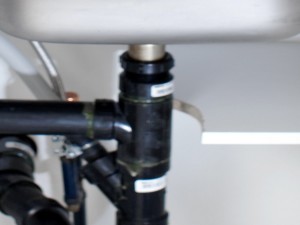Two Types of Corrosions Affecting Your Copper Pipes

 The world has seen modern households switch from iron plumbing pipes to copper since the 1960s. Several factors prompted this change, but one of the biggest is copper’s more effective resistance to rust and degradation than iron. Copper can also last up to a hundred years under the right conditions.
The world has seen modern households switch from iron plumbing pipes to copper since the 1960s. Several factors prompted this change, but one of the biggest is copper’s more effective resistance to rust and degradation than iron. Copper can also last up to a hundred years under the right conditions.
But like all things, copper pipes are not 100% resistant to damage. Take a look at some of the corrosion types that can hurt your pipes and what you can do about them.
Pitted Corrosion
Pitted corrosion is a localized type of corrosion where holes or cavities form in the material; in this case, your pipes. Many consider it as more dangerous than uniform corrosion damage because it is harder to identify and predict.
Chlorine exposure is the biggest cause of pitted corrosion. Any affected pipe will quickly form small leaks, also known as “pinhole leaks”. Although small, these holes can do an incredible amount of water damage before you even know it.
The best defense against this type of corrosion is to get your pipes inspected at least once a year, says a plumbing company in San Diego.
Formicary Corrosion
Formicary corrosion is a type of corrosion that many refer to as “ant’s nest” corrosion. This is because of the distinct ant tunnel pattern it creates in your copper pipes.
Formicary corrosion can result from soil interaction with the copper or formaldehyde particles in the air, which bores microscopic holes into the surface.
Like pitted corrosion, it’s also difficult to detect formicary corrosion. Before you know it, the damage has turned severe and is causing a coil leak. Although it doesn’t directly lead to leaks, it weakens certain areas of the pipe. This makes it much easier for leaks to occur in the future.
As of today, there are no surefire ways to protect against formicary corrosion. But as in the case of pitted corrosion, annual pipe inspections can pinpoint any leaks resulting from formicary corrosion and address them.
Don’t wait until it’s too late. Listen to the experts and have your plumbing system inspected periodically. This may not prevent or repair the corrosion, but it certainly will protect you from the damages they cause.




